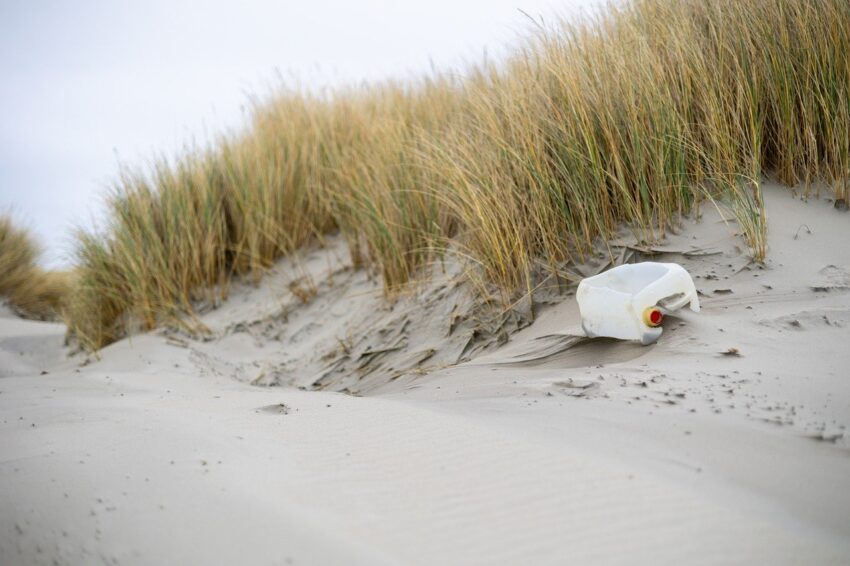Creating a plastic-free environment for your baby promotes health and sustainability. Plastics often contain chemicals that can harm your child and the planet. Adopting eco-friendly practices early in your parenting journey helps set a strong foundation for mindful living. Here’s a comprehensive guide to raising a plastic-free baby.
1. Start with Feeding Essentials
Feeding items are often made of plastic, but alternatives are widely available:
- Glass Baby Bottles: Opt for durable and safe glass bottles. They don’t leach chemicals and are easy to clean. Use silicone sleeves for added grip.
- Stainless Steel Sippy Cups: These are long-lasting, chemical-free, and resistant to rust.
- Bamboo Utensils: Replace plastic spoons and forks with bamboo alternatives.
- Silicone Bibs: Though technically a synthetic material, food-grade silicone is safer and more durable than plastic.
2. Switch to Cloth Diapers
Disposable diapers contribute significantly to plastic waste. Cloth diapers made of organic cotton or bamboo are:
- Reusable and budget-friendly over time.
- Free of harmful chemicals found in disposable diapers.
- Better for the environment, reducing landfill waste.
Tips for Use:
- Invest in a few dozen diapers to rotate between washes.
- Use reusable cloth diaper liners for added convenience.
3. Avoid Plastic in Toys
Plastic toys often contain phthalates and other harmful chemicals. Replace them with:
- Wooden Toys: Ensure they are made from sustainably sourced wood with non-toxic paint.
- Fabric Toys: Look for organic cotton or wool stuffed animals.
- Natural Rubber Teethers: These are biodegradable and chemical-free.
4. Store Food in Plastic-Free Containers
- Use glass jars for homemade baby food and snacks.
- Stainless steel lunch boxes are ideal for outings.
- Avoid buying pre-packaged baby food that comes in plastic containers.
5. Dress Your Baby in Organic Fabrics
Clothing and bedding made of synthetic fabrics can release microplastics. Choose:
- Organic Cotton: Free from pesticides and synthetic dyes.
- Bamboo Fabric: Soft, hypoallergenic, and sustainable.
- Wool Blankets: Natural and long-lasting.
Pro Tip: Wash these fabrics in a guppy bag to reduce shedding into water systems.
6. DIY Baby Wipes
Disposable wipes often contain plastic fibers. Make reusable cloth wipes from old cotton T-shirts or purchase organic cotton cloths. Use them with a homemade cleaning solution of water, aloe vera, and a few drops of essential oil.
7. Choose Non-Plastic Baby Care Products
- Replace plastic-packaged lotions with products in glass jars or metal tins.
- Use bar soaps and shampoos instead of bottled versions.
- Opt for reusable cotton rounds instead of single-use baby pads.
8. Create a Sustainable Nursery
Furnishing your baby’s nursery with non-plastic items can be simple:
- Buy wooden cribs and dressers from sustainable sources.
- Use natural fiber rugs like jute or wool.
- Choose storage baskets made from wicker or fabric instead of plastic bins.
Pro Tip: Avoid foam mattresses that may contain plastic. Opt for organic cotton or natural latex instead.
9. Shop Mindfully
Support brands that prioritize sustainability. Look for certifications like:
- GOTS (Global Organic Textile Standard): Ensures textiles are made from organic fibers.
- FSC (Forest Stewardship Council): Verifies wood is sustainably sourced.
Buy second-hand items whenever possible to reduce overall consumption.
10. Minimize Single-Use Plastics
Replace everyday single-use items with sustainable alternatives:
- Use cloth shopping bags instead of plastic ones.
- Store snacks in beeswax wraps.
- Carry reusable water bottles and utensils during outings.
11. Introduce Eco-Friendly Bath Time
- Use a soft cotton washcloth instead of synthetic sponges.
- Choose biodegradable or natural rubber bath toys.
- Replace plastic bath mats with cork or bamboo alternatives.
12. Involve Family and Friends
Inform family and friends about your goals to reduce plastic use. Encourage eco-friendly gift options like:
- Cloth diapers
- Wooden toys
- Organic clothing
13. Lead by Example
As you strive for a plastic-free home, your baby will grow up seeing sustainable habits in action. This instills lifelong values and contributes to broader environmental awareness.
14. Avoid Hidden Plastics
Some products labeled as eco-friendly may still contain plastic. Check for:
- Synthetic linings in clothing.
- Foam padding in mattresses.
- BPA-free plastic, which may still leach other chemicals.
Always read labels and ask manufacturers about product materials.
15. Advocate for Change
Join or support initiatives that push for sustainable parenting products. Sharing your journey with others can inspire more families to adopt plastic-free lifestyles.
Benefits of Raising a Plastic-Free Baby
- Healthier Environment for Your Baby: Reducing exposure to harmful chemicals promotes overall well-being.
- Eco-Friendly Lifestyle: Minimizing plastic reduces pollution and supports a sustainable future.
- Cost Savings: Reusable products like cloth diapers and glass bottles save money over time.
- Higher Quality Products: Non-plastic alternatives are often more durable and made with care.
Final Thoughts
Raising a plastic-free baby requires effort, but it’s achievable with gradual changes. Small steps—like choosing glass bottles, cloth diapers, and wooden toys—can make a big impact. By prioritizing sustainability, you protect your child’s health and contribute to a greener planet.

